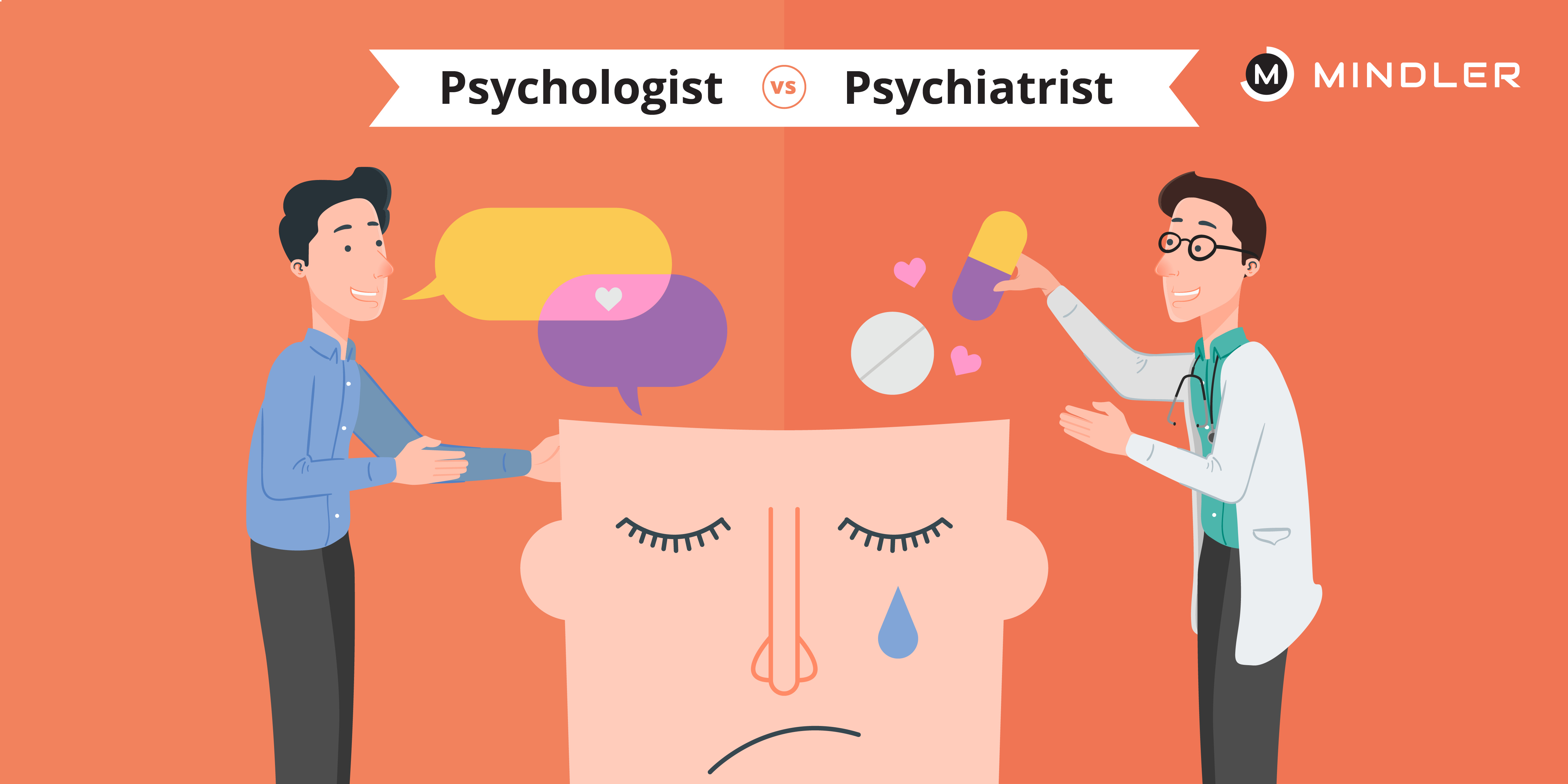Elementa Psychologists Kew: Your Path to Mental Clarity and Healing
Elementa Psychologists Kew: Your Path to Mental Clarity and Healing
Blog Article
Scientific Psychologists Vs Psychiatrists: Key Distinctions You Must Know
The difference between scientific psycho therapists and psychiatrists is vital for individuals looking for mental health and wellness treatment, as each expert deals special experience shaped by their educational backgrounds and therapy methods. This difference increases important concerns about which expert might be finest matched for various mental health and wellness requirements.
Educational History
Many individuals seeking mental health and wellness solutions might ask yourself about the differences in academic backgrounds between scientific psycho therapists and psychoanalysts (clinical psychologists kew Melbourne). The differences are essential and considerable for recognizing the functions each expert plays in mental healthcare

In comparison, psychiatrists are medical doctors (M.D. or D.O.) that finish a four-year clinical degree complied with by a residency in psychiatry, which lasts an extra four years. Their medical training outfits them to recognize the organic aspects of mental disorders, allowing them to prescribe drugs and offer a medical perspective on therapy.
These varying instructional courses highlight the distinct know-how each specialist gives the field, forming their techniques to client, medical diagnosis, and treatment care (clinical psychologists kew Melbourne). Comprehending these differences is essential for people navigating the mental health system

Therapy Techniques
Varied treatment approaches characterize the techniques of professional psycho therapists and psychiatrists, reflecting their distinctive training and locations of know-how. Scientific psychologists largely make use of psychotherapy, employing strategies such as cognitive-behavioral therapy (CBT), dialectical behavior treatment (DBT), and psychodynamic therapy. Their focus gets on emotional and emotional analysis, intervention, and the growth of coping strategies to resolve different mental health and wellness conditions. They might work with pairs, groups, or people, customizing their restorative methods to the certain needs of their customers.
In comparison, psychoanalysts are uniquely qualified to identify and deal with mental wellness conditions via a combination of psychiatric therapy and pharmacotherapy. Their medical training enables them to prescribe drugs, which can be vital for handling conditions such as schizophrenia, bipolar affective disorder, or serious depression. Psychoanalysts frequently take an even more biomedical strategy, considering the biological, psychological, and social factors influencing a client's psychological health and wellness.

Function in Mental Wellness Treatment
The duties of clinical psychologists and psychiatrists in mental health care are complementary, reflecting their distinct training and competence. Scientific psycho therapists mostly concentrate on the analysis, medical diagnosis, and treatment of mental problems through various therapeutic modalities, consisting of cognitive-behavioral treatment (CBT), social treatment, and psychoeducation. Their training highlights understanding human behavior, psychological performance, and the healing process, enabling them to provide evidence-based treatments customized to private requirements.
On the other hand, psychiatrists are clinical physicians who specialize in the medical diagnosis and therapy of mental health problems, usually utilizing a biomedical method. They can prescribe drugs to handle psychiatric symptoms and are educated to think about the physiological facets of mental health, such as neurobiology and pharmacology. This clinical perspective permits psychiatrists to address intricate situations that might need a combination of drug monitoring and psychotherapy.
With each other, scientific psychologists and psychoanalysts produce an extensive psychological healthcare framework, addressing both emotional and medical requirements. Cooperation between these specialists guarantees that people receive all natural care, eventually improving treatment end results and improving the lifestyle for individuals experiencing psychological health obstacles.
Kinds Of Disorders Treated
While both professional psycho therapists and psychoanalysts address a wide range of mental health disorders, their approaches and areas of knowledge typically determine the certain conditions they deal with. Scientific psychologists mainly focus on the evaluation and therapy of emotional, behavioral, and cognitive disorders via psychiatric therapy.
On the other hand, psychoanalysts are medical doctors that can suggest medicines and have actually specialized training in the biological aspects of mental wellness. They usually handle much more complex psychiatric problems that may need pharmacological intervention, such as schizophrenia, bipolar problem, serious depression, and material utilize disorders. Psychoanalysts might integrate drug administration with psychotherapy yet normally concentrate on the medical and biochemical components of psychological health and wellness issues.
Recognizing these distinctions can help people seek the ideal care tailored to their certain mental health and wellness needs, guaranteeing they receive one of the most effective therapy for their problems.
Insurance Coverage and Cost Factors To Consider
Navigating insurance coverage and cost considerations is an essential facet for individuals looking for psychological health solutions from clinical psychologists or psychoanalysts. Both professions may approve various insurance plans, yet the degree of coverage can vary considerably. Psychoanalysts, that typically suggest medication, may have different invoicing techniques contrasted to medical psycho therapists, my blog that generally concentrate on psychiatric therapy.
Insurance compensation for psychological solutions might be much more positive as a result of the medical nature of their practice. Patients may experience higher deductibles or co-pays when getting in touch with a psychiatrist. In contrast, medical psychologists might supply solutions billed under mental health benefits, which might lead to reduced out-of-pocket costs, depending on the insurance firm's plan.
Moreover, individuals should consider the frequency and period of treatment sessions when evaluating costs. While psychiatrists website here could supply much shorter, medication-focused brows through, professional psycho therapists often take part in longer sessions dedicated to therapeutic methods.
Inevitably, comprehending the certain regards to one's insurance coverage strategy, consisting of network accessibility, protection limitations, and pre-authorization demands, is vital. Clients are encouraged to call their insurance policy supplier to clear up benefits and explore options for budget friendly psychological healthcare.
Final Thought
In summary, the distinctions in between scientific psychologists and psychoanalysts are vital for informed choices relating to mental healthcare. Educational history, treatment strategies, and functions in psychological health and wellness significantly vary between the 2 professions. While professional psychologists largely focus on psychiatric therapy, psychiatrists incorporate drug administration right into their practice. Recognizing these differences improves the capacity to choose the appropriate specialist based on specific demands, whether they include treatment, drug, or a mix of both for optimum mental health outcomes.
The difference in between professional psychologists and psychiatrists is vital for people looking for psychological health care, as each professional offers special proficiency shaped by their academic backgrounds and treatment methods.The duties of medical psychologists and psychiatrists in mental health and wellness treatment are complementary, showing their unique training and know-how.While both my company professional psycho therapists and psychoanalysts resolve a vast array of psychological wellness conditions, their techniques and areas of competence commonly determine the particular conditions they treat.Browsing insurance policy and expense considerations is a vital element for individuals seeking psychological wellness services from medical psychologists or psychoanalysts.In recap, the distinctions between professional psycho therapists and psychiatrists are essential for informed choices pertaining to mental health treatment.
Report this page